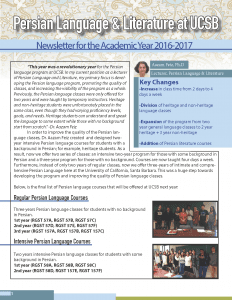Undergraduate majors may work towards the honors distinction, and there are several departmental awards given each spring for outstanding achievement. Many majors go on to do graduate work in religion, while others entering various professions find that the interpretive, writing, and problem solving skills they learned studying religion give them a unique edge in their work.
Requirements
- Requirements Sheets for Programs in Religious Studies
The major requires completion of eight lower-division units (two courses); and 36 upper-division units – about nine courses. Students should consult the current General Catalog or meet with the undergraduate advisor about course distribution requirements.
Areas of Study: An Overview
A significant portion of the Religious Studies B.A. (UD Area A) requires students to pick 2 areas of emphasis and one elective from any category. Students can concentrate in several areas of study including:
Area A-1: South Asian, Central Asian, and East Asian traditions
Area A-2: Near Eastern, Jewish, and Islamic traditions
Area A-3: Mediterranean, European, and Christian traditions
Area A-4: Traditions of the Americas
A student’s primary emphasis can be achieved by taking 3 classes in the same area of emphasis, while the secondary emphasis is achieved by taking 2 courses in another area. Students may also pursue a unique emphasis under the following category:
Area A-5: Comparative & Thematic Studies.
*Students pursuing this option will still need to complete their Area B credit independent of their emphasis.
Comparative & Thematic Studies
By petition students may combine any courses from upper-division Areas A and B to create
a custom comparative or thematic course of study. Some pre-approved tracks do exist, however. Examples of potential thematic tracks emphases include but are not limited to:
- Religion, Gender & Sexuality
- Religion, Ethics & Politics
- Religious Art, Media & Iconography
Pre-approved courses for these three tracks can be found on this webpage. Remember that students may also work with faculty to craft their own unique emphasis by petition, however.
For more information on examples of approved tracks and how to apply courses towards this Area, please reach out the the Undergraduate Program Coordinator/Advisor (contact information provided below).
Advising
The department’s undergraduate advisor helps students plan their course of study. The department chair and other faculty members also assist students with academic planning.
Contact the Undergraduate Program Coordinator, Kailee Lencioni.















